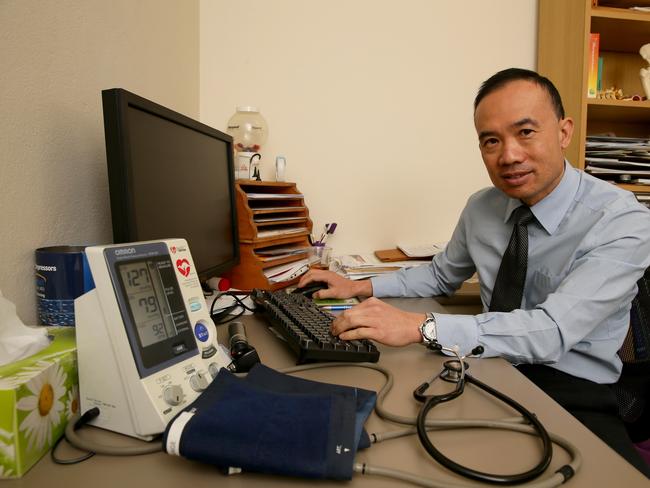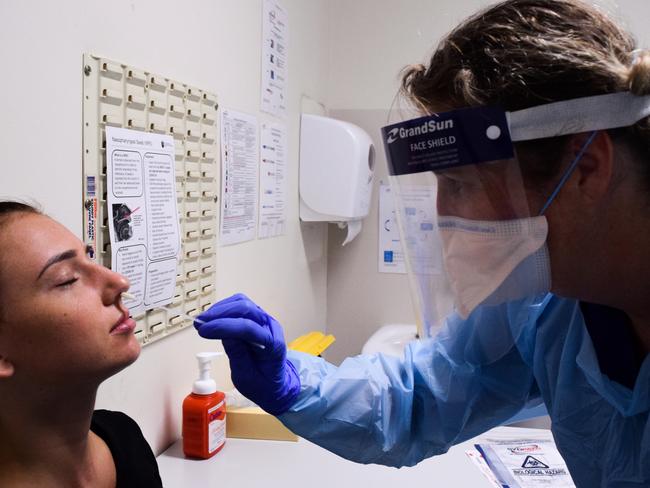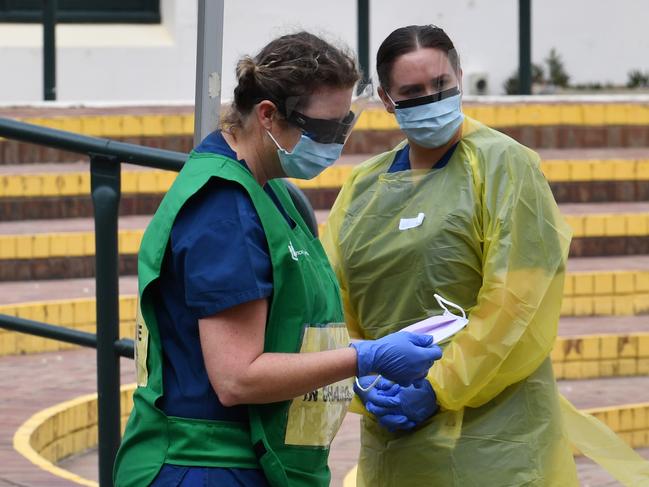Mount Druitt GP clinic being used as a COVID-19 ‘bedless hospital’
As health workers race to find hospital beds for COVID-19 patients, one Western Sydney GP clinic is trialling a “remote hospital” where doctors monitor patients in their own homes

NSW Coronavirus News
Don't miss out on the headlines from NSW Coronavirus News. Followed categories will be added to My News.
Two young women with COVID-19 have become the first patients in Sydney to take part in a “bedless hospital” trial where local GPs will treat them at home.
In a move designed to free up hospital beds, patients taking part in the trial will be asked to answer a daily online questionnaire, with medical staff at the Mt Druitt Medical Centre making a daily assessment as to whether they can stay at home or need to head to hospital.
The medical centre is run by Australian Medical Association (NSW) president Dr Kean-Seng Lim. He devised the questionnaire software and the centre will accept as many as 20 COVID-19 patients as part of the trial, which could be expanded across other health districts.

A copy of the questionnaire obtained by The Sunday Telegraph reveals the questions patients will be required to answer, including whether they can speak a full sentence, have a severe headache or a temperature above 38.5C.
Dr Lim said the answers would result in a green, orange or red score, with the latter prompting a request for the patient to call an ambulance.
The daily responses would be monitored by the nurses and pharmacist, with the GPs becoming involved with a more serious score, he said.
MORE FROM LINDA SILMALIS:
Hotels where travellers will be quarantined
Medicos escape Sydney hotel virus quarantine
If the patients deteriorate during the course of the day, they can send a message on the app, which would be picked up immediately, he said.
The trial, which is being run out of the Western Sydney Local Health District and Primary Health Network, is based on remote care already being offered for patients with conditions such as diabetes, heart failure and asthma, he said.

Dr Lim said the first two women to take part in the trial were aged 23 and 24 years, both of whom were “expected to do well” given their low risk profiles.
But with “one per cent” of those with a low risk profile still requiring potential hospital care, ongoing monitoring was critical, he said.
“The patients we will accept will have been diagnosed at one of the COVID-19 clinics and are regarded as low to moderate risk,” Dr Lim said

“We know that, with coronavirus, most patients that deteriorate do on days 7 and 10.
“This software means at a glance we can see whether someone needs to be followed up.”
Dr Lim said the system maximised the efficiency of local hospitals by freeing up beds and emergency department doctors while also allowing general practitioners in the community to play a more effective role.

The centre has five doctors, three nurses and a pharmacist, who are each taking part in the trial.
Other measures to ease the load on hospitals are the subject of ongoing discussions of various localised working groups comprised of medical practitioners of different specialties who are sharing their knowledge as part of the NSW Health crisis response, Dr Lim said.
